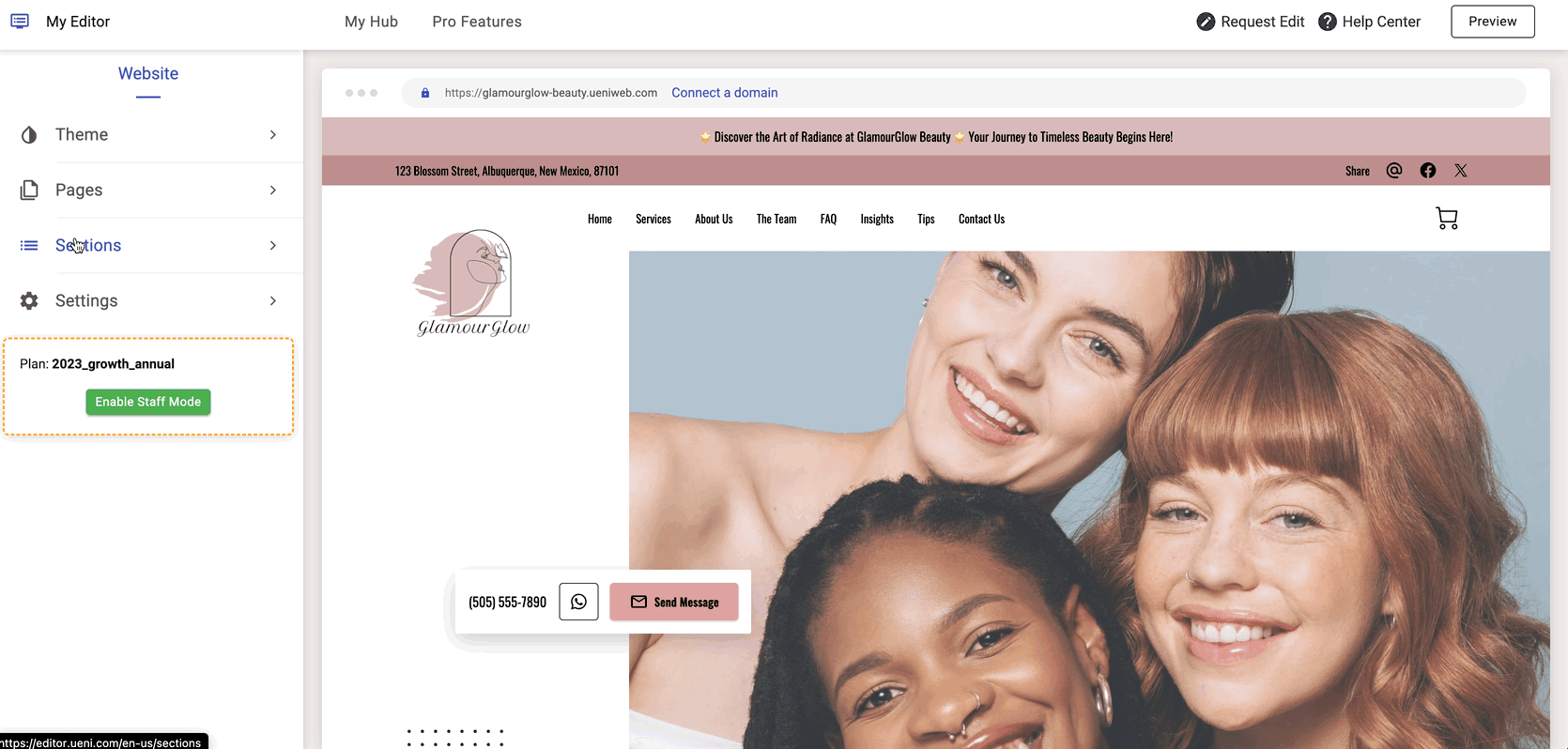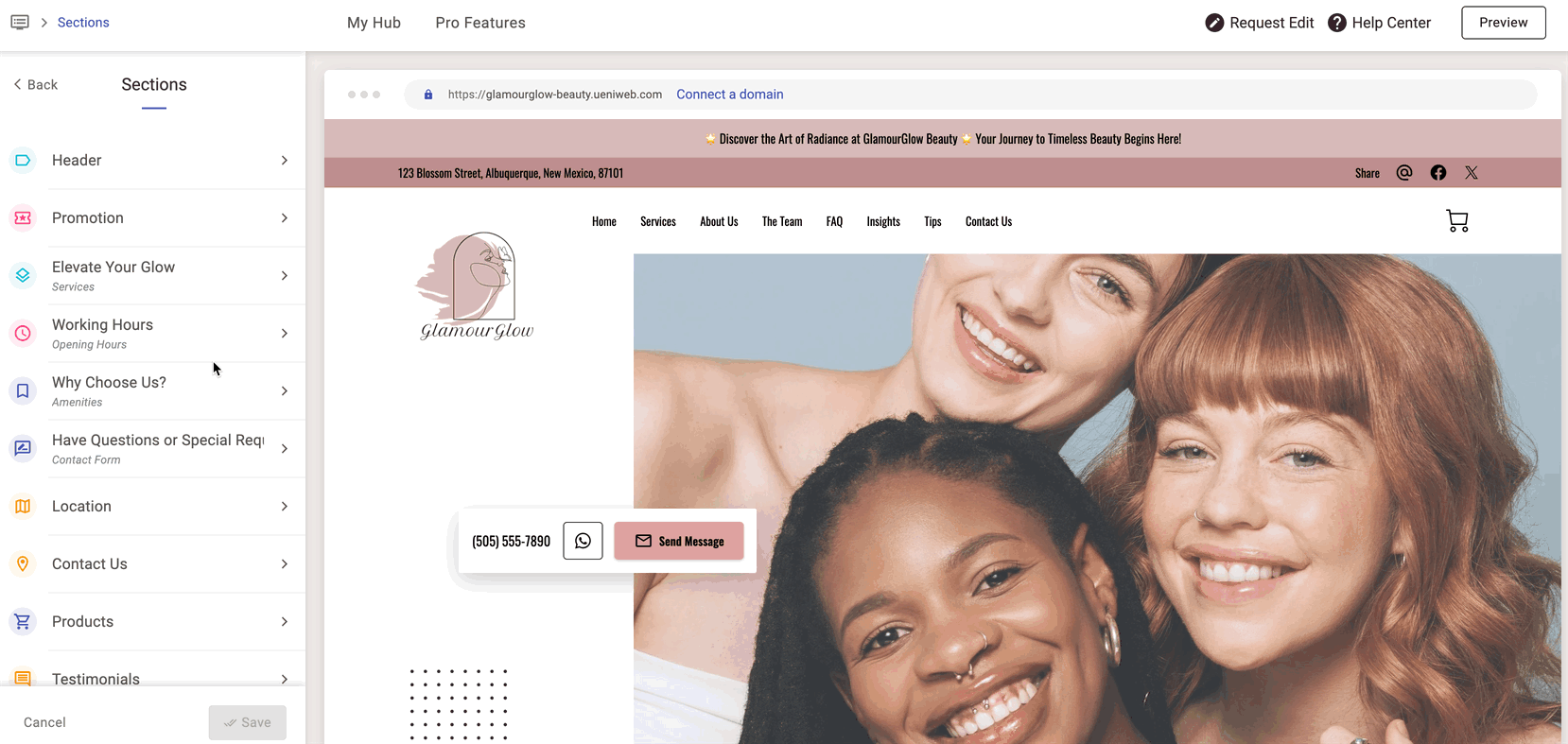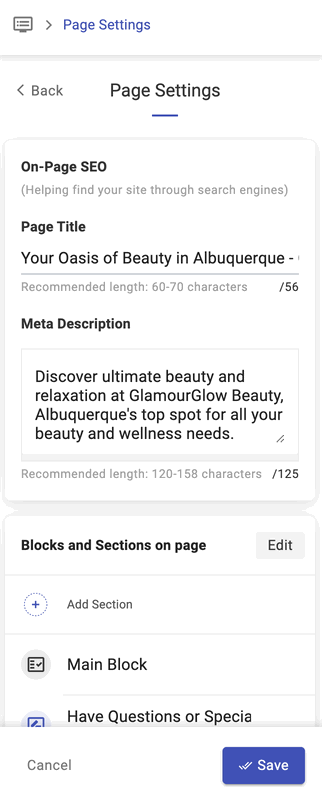Having a strong online presence is crucial for small businesses aiming to thrive in a competitive market. With countless websites vying for attention, how do you ensure that your business stands out? The answer lies in Search Engine Optimization (SEO), a powerful tool that can significantly enhance your website’s visibility and attract potential customers. However, it’s essential to understand that SEO is not a magic solution that guarantees instant success. Instead, it requires strategic planning, consistent effort, and an understanding of search engine algorithms.
At UENI, we’re dedicated to simplifying the SEO process for small business owners by introducing the latest feature: Customising your On-Page SEO. This feature empowers you to customize each page’s SEO Meta Title and Meta Description, thereby improving your website’s chances of ranking higher in search engine results.
So, what exactly is SEO, and how can it benefit your small business? In essence, SEO involves optimizing your website to make it more search engine-friendly, thereby increasing its visibility when users search for relevant keywords. By strategically using keywords and optimizing meta tags such as Meta Title and Meta Description, you can improve your website’s chances of appearing in search results, ultimately driving more traffic to your site.
To access the On-Page SEO feature on UENI, simply follow these steps:
- Head to the Editor: Log into your Hub and select the Edit Website tab.
- Navigate to Sections: On the Editor.

- Locate the relevant sections where you can customize SEO, including the ‘About Us’ page, Products internal page, or Services internal page.

- Customize SEO Meta Title and Description: Select the desired section and scroll to the bottom to find Page Settings. Here, you can edit the SEO Meta Title and Meta Description to optimize them for search engines. Once you’ve made the necessary adjustments, don’t forget to save your changes to apply them to your website.

While optimizing your website’s SEO is undoubtedly beneficial, it’s essential to understand that SEO alone is not enough to guarantee top rankings. Search engines like Google utilize complex algorithms that consider various factors when determining search results. These algorithms are constantly evolving, meaning that what works today may not necessarily work tomorrow.
Tips for Writing Effective Meta Titles and Meta Descriptions
Creating impactful Meta Titles and Meta Descriptions is both an art and a science. These elements play a crucial role in your website’s SEO performance and user click-through rates. Here are some practical tips to help you craft compelling Meta Titles and Descriptions for your web pages:
- Focus on Clarity: Your Meta Title and Description should clearly convey the purpose and content of your page. Avoid ambiguity and ensure that readers can understand the page’s value proposition at a glance.
- Incorporate Keywords Wisely: Keywords are vital for SEO, but they need to be integrated naturally. Choose keywords that are directly relevant to the page’s content and include them in both your Meta Title and Description in a way that reads smoothly.
- Be Concise but Descriptive: With character limits in mind, strive to be as descriptive as possible. Your Meta Title should grab attention, while your Meta Description should offer enough detail to make the reader want to click through to your site.
- Differentiate Each Page: Each page on your website should have a unique Meta Title and Description. This not only helps with SEO but also ensures that users understand the distinct value of each page.
- Use Active Voice and Action Verbs: Writing in an active voice and using action verbs can make your Meta Descriptions more engaging. Phrases like “Discover more,” “Learn how,” or “Find out” can encourage users to take action.
Please note, search engines may modify the information displayed in search results or choose different snippets from your page based on the user’s specific search query. As a result, achieving and maintaining a high search ranking requires ongoing effort, adaptation, and an understanding of the nuances of search engine algorithms.
In conclusion, SEO is a valuable tool for small business owners looking to improve their online visibility and attract more customers. By optimizing your website’s content and meta tags, you can enhance its chances of ranking higher in search engine results. However, it’s essential to recognize that SEO is just one piece of the puzzle, and success requires a holistic approach that encompasses various aspects of digital marketing. With the right strategies and tools, small businesses can effectively compete in the online landscape and reach their target audience.
For more information, check out our helpdesk article for this feature here!









